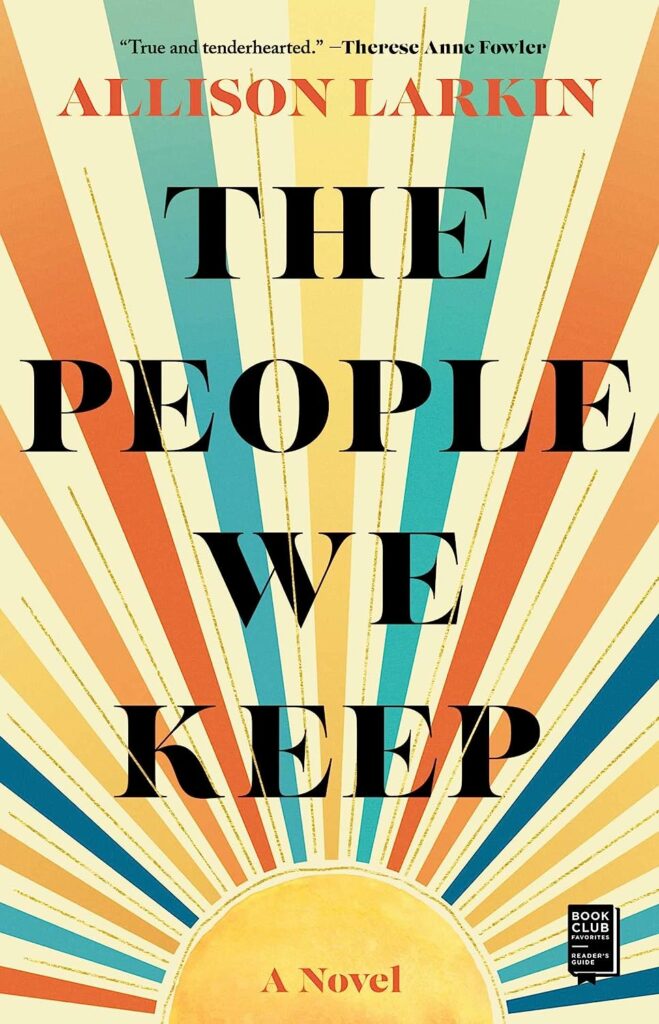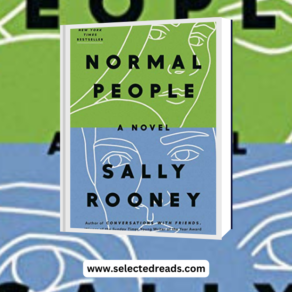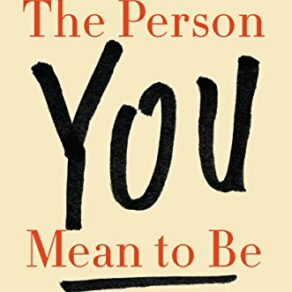“The People We Keep” is a heartfelt novel that takes readers on a poignant journey alongside its protagonist, April Sawicki. Set in the 1990s, the story unwraps the complexities of relationships, self-discovery, and the power of creative resilience. April, a young woman stifled by her life in the small town of Little River, New York, takes a leap of faith to escape her circumstances and find a life she can claim as her own.
A Humble Beginning
April Sawicki’s life in Little River is anything but idyllic. Living in a stationary motorhome won by her father in a poker game, she is a high school dropout and works shifts at a local diner. Feeling out of place and constrained by her environment, her life takes a turn when she performs at an open mic night after “borrowing” her neighbor’s car. This catalytic moment makes her realize the sheer vastness of possibilities outside her small-town bubble.
A Departure and An Arrival
After a tumultuous fight with her father, April takes the bold step of leaving her home for an uncertain future. With no particular destination in mind, she eventually finds herself in Ithaca, New York. Her initial intention is to merely survive, but fate has other plans for her at Cafe Decadence, a local coffee shop where she finds employment and something much more valuable—community and a sense of belonging.
The Ithaca Chapters
Life at Cafe Decadence introduces her to friendships and experiences that feel like a balm to her scarred soul. However, as April begins to settle into this newfound comfort, she is haunted by the idea that she could bring pain and hurt to the people she has come to care about, just as she herself has been hurt in the past.
Chronicles in Song
Music serves as a powerful narrative tool in the story. Through her songwriting, April processes her experiences and emotions, providing her with clarity and insight into her own life. These songs become the emotional milestones marking her journey towards self-discovery and acceptance.
The Journey Continues:
As April traverses different places and meets a variety of people who feel like “home,” she begins to understand that one’s past doesn’t have to define one’s future. The more she interacts with the world, the clearer it becomes that life offers myriad possibilities, and it’s up to her to choose her path.
Themes and Takeaways
The novel functions as a touching tribute to creative resilience, echoing the sentiment expressed by Caroline Leavitt that sometimes tragedy can indeed be a form of blessing. It spotlights the idea that everyone we meet becomes a part of us in some way—an ensemble cast in the story of our lives. This speaks to me, particularly in my role as an educator and researcher, where the idea of personal development through life experiences is a recurring theme.
Characters in The People We Keep by Allison Larkin
Here are some of the main characters in The Peopke We Keep:
April Sawicki
The heart and soul of the story, April is a young woman searching for her place in the world. She’s a high school dropout who’s always felt like an outsider in her small hometown of Little River. Driven by her passion for music and an indomitable spirit, April is complex, vulnerable, and determined. She’s the vessel through which the story delves into themes of self-discovery, belonging, and resilience.
April’s Father
A shadowy figure in April’s life, her father represents the troubled past she’s trying to escape. Their tumultuous relationship serves as a catalyst for April’s departure and quest for a life that’s all her own.
Cafe Decadence’s Staff and Regulars
The people April meets at Cafe Decadence in Ithaca offer her a sense of community and belonging that she’s never felt before. Each of them has their own background, troubles, and dreams, and they collectively embody the idea that family isn’t just something you’re born into—it can be something you create.
Assorted Characters on April’s Journey
Throughout the novel, April encounters various people who each leave an indelible impact on her life. These characters, whether they appear briefly or stay a while, contribute to April’s evolving understanding of what home and family can mean.
April’s Music
Although not a human character, April’s music is a significant presence in the story. Her songs function like an emotional roadmap, chronicling her internal journey and serving as an extension of herself.
In my view, the characters in “The People We Keep” are exquisitely crafted, lending depth and dimension to the overarching narrative. What strikes me the most is how relatable and human they are, each serving as a fragment in the mosaic of April’s life. It’s a nuanced representation that validates the idea that we are all an amalgamation of the people we meet and the experiences we have.
Book Club Questions for “The People We Keep” by Allison Larkin
- April’s Upbringing: How do April’s early life experiences in Little River shape her personality and decision-making throughout the book? Can you relate this to any theories or works about the influence of upbringing on adult life?
- The Role of Music: How does April use music as a form of self-expression and coping? What other creative outlets have you found helpful in your own life?
- Concept of Home: April grapples with the idea of ‘home’ throughout the story. What does ‘home’ mean to you, and how does it compare to what April discovers about this concept?
- Relationships and Vulnerability: April is cautious about letting people into her life because she fears hurting them. Do you think this caution is justified? How do you navigate the balance between vulnerability and self-preservation in your own relationships?
- Secondary Characters: Which secondary character did you find most compelling, and why? How do these characters contribute to April’s understanding of life and family?
- Ithaca and Cafe Decadence: How does the setting of Ithaca and particularly Cafe Decadence serve as a character in its own right in the story? Do you have places that have served similar roles in your own life?
- Journey vs. Destination: April starts off with no specific destination in mind, emphasizing the importance of the journey itself. Have you ever taken a leap of faith similar to April’s? What did you learn from the experience?
- Themes of Resilience: How does the book explore the theme of resilience, especially through April’s character? Does this resonate with any academic or scholarly insights you’ve encountered on resilience?
- The Title’s Meaning: What do you think the title “The People We Keep” signifies? How does it encapsulate the core themes of the story?
- Ethical Dilemmas: April makes several morally ambiguous choices, like “borrowing” her neighbor’s car. How did you feel about these actions? Were they justified given her circumstances?
- Book’s Emotional Impact: How did the story make you feel overall? Did it evoke empathy, frustration, happiness, or something else?
- The Ending: Without giving away spoilers, were you satisfied with the conclusion? Why or why not? What would you have changed?
Drawing from my own experience in the field of education, I often see young people wrestling with issues around belonging, identity, and the future—much like April. This book could be an excellent springboard for discussions around these themes, not only within the context of literature but also in understanding life’s complexities.
For those who are keen on diving deeper into the psychology of character development and human relationships, Carl Rogers’ “On Becoming a Person” could offer an academic yet accessible perspective.
Conclusion
“The People We Keep” is a beautifully lyrical and introspective novel that delves deep into the human experience of belonging, pain, and the constant quest for a place to call home. April’s journey serves as a timeless reminder that the pursuit of self-discovery is often rocky but eternally rewarding.
In essence, the story is a moving love letter to resilience, brimming with authenticity, and a lesson in how our origins don’t have to hold us back from seeking and finding our chosen family.







